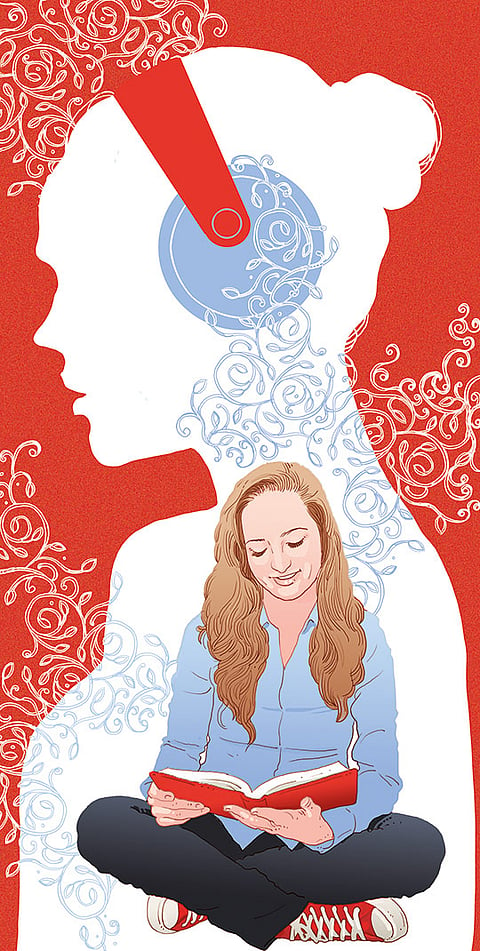Why some people inspire us so much
We grow and evolve in life by reading the great works of those who came before us

Whether it’s prose or poetry, you can’t thrust upon yourself the ability to write. You have it in you or you don’t. But there are predecessors and contemporaries who inspire you to grow and evolve as a writer or a poet. You draw from their works, in most of the cases subliminally, though.
Allama Iqbal, popularly known as Shair-e-Mashriq — Poet of the East — in the Subcontinent, was sufficiently inspired by German greats Nietzsche and Goethe and we see their influence on his poetry. In fact, Iqbal’s idea of Mard-e-Momin, albeit a pious one, is said to have been inspired by Nietzsche’s Übermensch.
Iqbal was also deeply influenced by Rumi, widely known as Mevlana in the West and extensively read and quoted. Iqbal considered him his spiritual guide. In one of his poems, Iqbal arranges in paradise a meeting between Rumi and Goethe.
Iqbal, on his part, also went on to inspire generations of poets, writers and others and continues to do so. Few as much as the revolutionary poet Faiz Ahmad Faiz and Sahir Ludhianvi, the feisty, maverick poet. There are vivid impressions of Iqbal in Faiz’s poetry.
Also Read: My many close encounters with death
Also Read: The heroes who have shaped my life
Also Read: Why cooking is the stressbuster we all need
Faiz revered Iqbal immensely. In his poem ‘Iqbal’, Faiz pays him glowing tributes. Faiz’s poem ‘Kutte’ (Dogs) is a powerful parody of Iqbal’s moving poem ‘Tariq Ki Dua’ from Bal-e-Jibreel.
Iqbal’s influence on Sahir is equally unmistakable. The usage of power-packed metaphors and idioms in Sahir’s poetry is pretty identical to Iqbal’s and in a similar style and manner.
Iqbal’s influence could also be seen in Sahir’s lyrics that he wrote for the Indian films. ‘Cheen-o-Arab hamara’ from Phir Subah Hogi (1958) picturised on Raj Kapoor, is a parody of Iqbal’s Tarana-e-Milli. Or na tu zameen ke liye hai na aasman ke liye from Dastan (1972), picturised on Dilip Kumar.
India’s most prolific writer, Khushwant Singh, was known as a destroyer of reputations — of dead and living alike. He showed scant respect for stature or position of anyone who was rolled over by the juggernaut of his pen.
Singh wrote over a hundred books and innumerable newspaper columns. His writings are sexually explicit and full of biting wit. Much as he enjoys a towering stature among Indian writers, and rightly so, it isn’t too difficult to see how heavily he was influenced by the controversial and posthumously celebrated Urdu writer Saadat Hasan Manto who was many notches up in ripping into personalities who held a special place in popular imagination. One wonders if Singh’s writings would’ve carried the same spice and zest had he not come across Manto’s works.
Popularising Urdu in India
Though only three years older than Singh, when Manto died at a young age of 43 in 1955, he had created waves in Pakistan through his provocative writings that often found him defending himself in the courts of law. In India, though, Manto was known to only a limited circle of Urdu readers.
But great credit goes to Singh for introducing Manto to non-Urdu readers by translating some of his most compelling writings. Singh’s translation of Manto’s short story Toba Tek Singh, which has assumed an iconic status, is as good as a translation can be.
But it was the translation of another story, Bu (The Odour), that Khushwant Singh did for men’s monthly magazine Debonair nearly four decades back, that first introduced Manto to the Indian readers, an overwhelming majority of whom were, and still are, unfamiliar with Urdu.
‘Women and Men in My Life’ is a collection of short pieces on women and men who touched Singh’s life at different points in time. The racy, no-holds-barred accounts are vintage Khushwant Singh but one can’t help but notice a striking similarity with ‘Manto Ke Khake’, a collection of profiles of men and women written by Manto with all his brevity, flow and a meticulous employment of piercing expressions. Though it won’t be an overstatement to say that ‘Women and Men in My Life’ easily pales before ‘Manto Kay Khake’
Khushwant Singh has also not only quoted Allama Iqbal in his writings but has also translated his profound pieces of work, ‘Shikwa’ and ‘Jawab-e-Shikwa'.
Shabir Hussain is a senior journalist based in India








